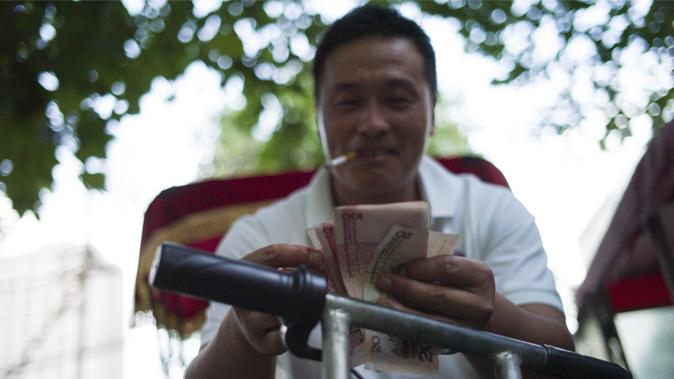Success is always relative. So given the Chinese stock market only went down 1.3 percent on Wednesday it can be considered a success compared to the 7 percent plus drops the days before.
However, the fact the market went down illustrates that Tuesday’s rate cuts were completely ineffective in changing sentiment, let alone economic fundamentals. Enthusiasm in the West about China’s effort to stimulate the stock market and the economy waned too: markets first went up and then closed down in the biggest reversal since the Lehman event in 2008.
Beijing seems to deem direct market intervention too expensive, so they have now resorted to tougher tactics and made good on their promise to arrest “malicious short sellers.”
Of course, nobody really knows whether Xu Gang, managing director at China’s number one brokerage CITIC Securities is a malicious short-seller, but he got arrested anyway. This is akin to the NYPD walking into Goldman Sachs’ office and arresting one of the MDs there.
Earlier this week, censors also banned the press from using terms such as “stock market crash” in order to suppress increasingly negative sentiment and has previously threatened to arrest journalists who would spread “fake stock and futures trading information.”
One reporter from Caijing magazine apparently didn’t get the message and wrote a piece on July 20 that the authorities would soon scale back on intervention. Subsequently the market plunged to new lows and the reporter who wrote the piece has now been arrested, according to Bloomberg.
Of course, these strongman methods also don’t solve the problem of a crashing economy and a deflating debt bubble, but the Chinese regime thinks it’s worth a try.





